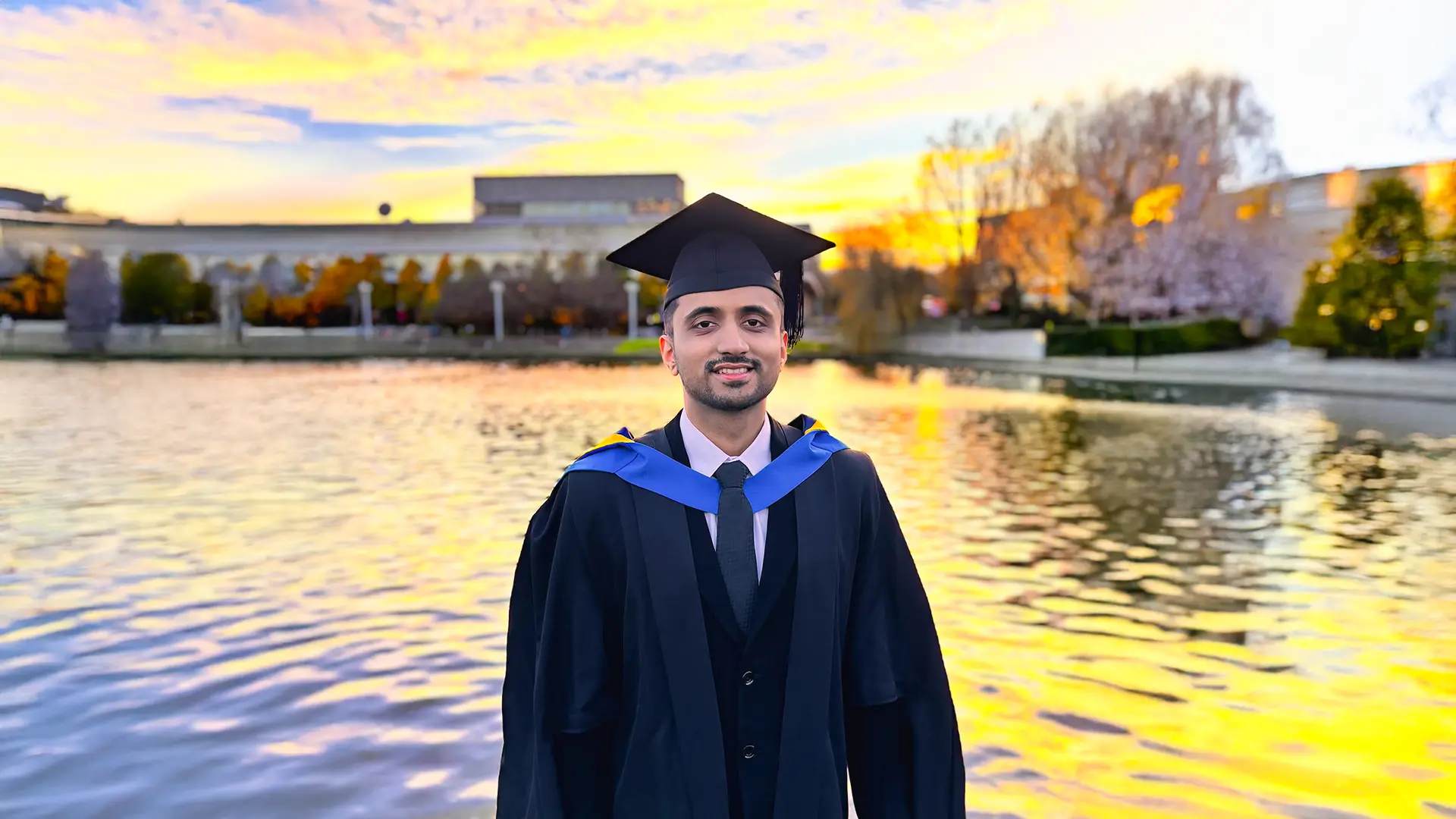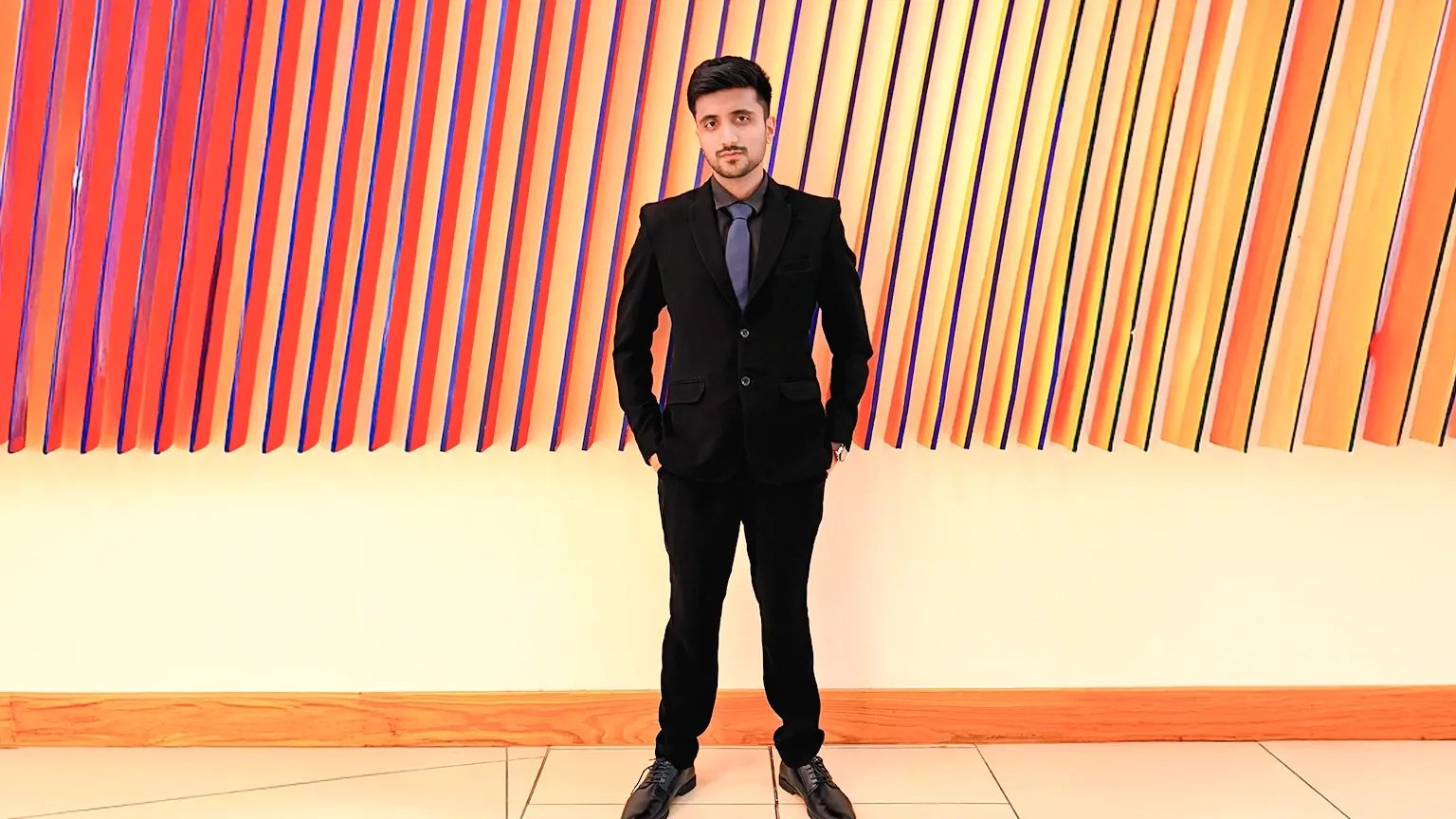Student Reviews
The Best Year of My Life: Pursuing a Master’s Degree in Ireland

I am Gaurav Balraj Kumar , a Quality Assurance professional at Kypha. I completed my master’s in Regulatory Affairs and Toxicology from University College Dublin. I spoke with Leap about my journey for their student expert series—Indians who had studied abroad recently and are still in that country pursuing their dreams—because I want to help others wanting to take the same career path that I took.
Q. Tell us about your background
I come from a life sciences background, specifically in the pharmaceutical industry. I completed my bachelor's degree in pharmaceutical sciences from Pune University. After that, I undertook several internships and worked as a Clinical Research Associate - Trainee.
Later, I decided to pursue my master's abroad, focusing on regulatory affairs—a field that, in simple terms, ensures the approval and quality of pharmaceutical drugs, and medical devices before they reach the market. To specialize in this area, I pursued a Master's in Regulatory Affairs and Toxicology at University College Dublin. I chose UCD because it's among the top 200 universities in the world according to QS World University Rankings and also one of the best in Ireland.
Q. Why did you want to study abroad?
During my internship, I frequently interacted with clients and sponsors outside of India, specifically from the US and the EU, which made me eager to gain a broader perspective and a more global experience. I wanted to understand how things operate on an international scale, and moving abroad would provide the exposure I was looking for.

Q. How did you decide where to go and study? What was the process like?
Like any other student planning to study abroad, I was on the lookout for universities that offered courses aligned with my background and profile. I shortlisted several universities in the UK, Ireland, Canada, and Germany.
Ultimately, I chose to study in Ireland because I found that the program at University College Dublin was the best fit for me. While I received offers from universities in the UK as well, I prioritized selecting a curriculum that aligned with my academic and professional goals. Moreover, Ireland has a strong presence in the medical device industry, which is growing exponentially. The country has become a major hub for life sciences, pharmaceutical manufacturing, and the medical device sector, making it one of the best locations for students in these fields.
Q. What was it like to study there?
My college life in Ireland was a lot of fun. UCD is easily one of the best universities in the country, in terms of its geographical infrastructure, top-notch facilities, and the academic as well as professional benefits it offers to students.
I spent a lot of time in the library. Outside of my studies, I was actively involved in sports, particularly cricket. UCD offers plenty of opportunities for extracurricular activities, which made my time there even more enjoyable.
The year went by incredibly fast—almost like a blur! It was a fast-paced experience, juggling studies, part-time work, extracurricular activities, and social life. Keeping up with everything was challenging, but it was also one of the best experiences of my life. Outside of academics and cricket, most of my time went into my part-time gig, as is the case for many study-abroad students.

Q. Can you tell us about your expenses?
The tuition fee for my course at UCD was €27,000 (approximately ₹24.5 lakh).
A budget of €1,200 (₹1.1 lakh) per month was manageable for someone with moderate spending habits, while €1,500 (₹1.35 lakh) allowed for a more comfortable lifestyle, including entertainment. The biggest expense was rent, which typically ranged from €600–€700 (₹54,500–₹63,500), depending on accommodation type.
I stayed in a private student accommodation, which was more affordable than UCD's on-campus options. UCD offers excellent student housing with great facilities, but it costs around €800–€900 (₹72,500–₹81,500) per month.
Q. What was your job-hunting process like?
My journey was a bit different because my course included an optional internship module. While it wasn’t mandatory, I worked hard and was fortunate to secure one at Kypha as a Quality assurance.
I went through three or four interviews before landing this role. Employers look at everything: your technical skills, character, background, soft skills, and overall fit. The process can be exhausting, especially with daily rejections. Even for entry-level internships, getting shortlisted depends on factors like CV formatting, determination, and a bit of luck to be very honest. It took me around six to eight months to understand the science behind the nuances of securing interviews.
To find internships, I primarily used LinkedIn, Glassdoor, and Indeed. Networking played a crucial role as well. I stayed in touch with alumni and peers from my course, which helped me gain insights and referrals. My internship opportunity actually came through the UCD Careers Portal, where I applied, interviewed, and eventually secured the role.

Q. Any final advice or thoughts?
While looking for internships, one strategy that helped me improve my interview skills was tracking my experiences. After every interview, I recorded voice notes, noting the questions asked, the expectations, and where I could improve. This helped me refine my approach over time. Introspection is the keyword here.
For job applications, I contacted industry professionals via cold emails and LinkedIn messages. Tools like Hunter.io and Apollo helped me find recruiter contacts. While response rates were low (about 10% of 100 emails), even a few replies could lead to valuable opportunities.
I also used ATS optimization tools like Resume Worded and Jobscan to ensure my CV included the right keywords. Though I don’t rely heavily on ATS scores, these tools helped me align my CV with job descriptions, as they intend to provide accurate keywords.
For Indian students coming to Ireland, I strongly recommend gaining some experience—internships, projects, or part-time work—before arriving. While fresh graduates can still land great jobs, having prior experience gives you an edge. The key is persistence, networking, and continuously improving your approach.




